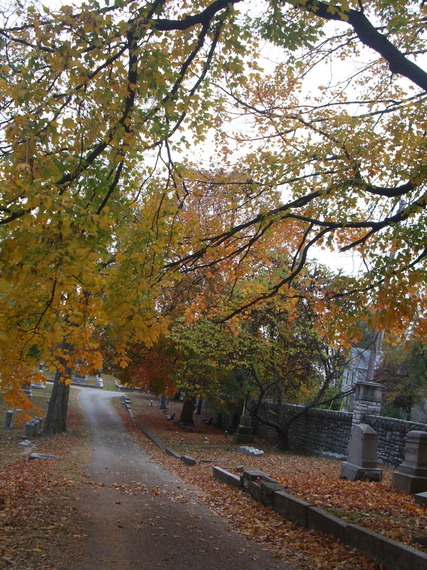
To the middle-aged woman who gestured angrily and yelled as we passed...
To the 30-something man in the power suit who honked and forced his black SUV through our line...
To the person who tried to pass us and then moved his car into our lane to block our progress...
Perhaps you don't know. Perhaps you didn't recognize the hearse and the flapping flags on the first few cars. Perhaps you didn't notice that we all had our lights on and our hazards flashing. Perhaps your mama never taught you to show respect to the dead by showing kindness to the grieving.
You couldn't know, of course, that the woman inside the hearse was only 20 years old. You couldn't know that she leaves behind parents and siblings and a young husband and a one-year-old baby girl. You couldn't know anything about the person in that hearse or the many people who followed. But you still could have stopped. You could have waited. You could have recognized that someone else's pain was greater than your need to get to lunch.
A funeral procession is not about getting to the cemetery at the same time. A funeral procession is a chain of connection, a visible sign of the invisible bond of grief.
Her parents saw you -- you were just the first of many who will be impatient with their grief. Her younger siblings saw you -- breaking the chain of cars that separated them from their sister's body and their parents' arms. You see, a funeral procession is not about getting to the cemetery at the same time. A funeral procession is a chain of connection, a visible sign of the invisible bond of grief.
To the grieving, it is inconceivable that the world keeps going when their world stopped. They cannot understand how the rest of the world keeps spinning, not aware that it has lost something precious, when their world will never be the same. They will go through the coming weeks and months and maybe years with a hole in their gut that will be virtually invisible to everyone who passes. But for this day, this moment, they are seen. And if their grief doesn't stop the world, at least it should stop traffic.
As a pastor, it is my job -- and my honor, my blessing and my burden -- to sit with families in the midst of their pain, to hold their hands, to try to bring them comfort when the unthinkable has happened. I listen to their stories. I help them plan a service that honors their loved one. I help them choose a scripture for the service, whether they know many by heart, or know only that their loved one believed, or know only that they want something religious just in case. We create a bubble, or maybe a cocoon -- a safe space where they can remember and cry and laugh and sit together in grief and anger and know that whatever they're feeling is OK.
It is heart-breaking to sit in those front pews, and it is gut-wrenching to watch those who sit in the front pews. But we are in it together -- this thing called life, this thing called grief, this thing called love. And then we move from that space, together, for one last difficult act after so many others -- one that nobody ever wants to imagine but always fears--to see our loved one's remains laid in the earth. So we follow the car in front of us, knowing that we are still in it together, still bound by our shared grief even as we go out into this busy, impatient, insensitive world.
To the grieving, it is inconceivable that the world keeps going when their world stopped. And if their grief doesn't stop the world, at least it should stop traffic.
So for those of you who were so angry that a funeral procession made you a few minutes late, I have a few suggestions. The next time this happens, try not to think of the fact that you missed one rotation of the lights; think instead about what the people in those cars will miss. Try not to think of being late for your lunch date; think about the people who will never again get to meet their loved one for lunch. Try to consider that maybe you could inconvenience yourself for one moment to allow a hurting family to stay together, to show them that you see them and you recognize their loss.
I hope you can do this because one day, you'll be the one driving with your lights on and your hazards flashing, needing to follow closely so you don't lose your connection, don't lose your way. And I hope the world will stop for you.
A version of this post originally appeared on pastorcindym.wordpress.com.
This post is part of Common Grief, a Healthy Living editorial initiative. Grief is an inevitable part of life, but that doesn't make navigating it any easier. The deep sorrow that accompanies the death of a loved one, the end of a marriage or even moving far away from home, is real. But while grief is universal, we all grieve differently. So we started Common Grief to help learn from each other. Let's talk about living with loss. If you have a story you'd like to share, email us at strongertogether@huffingtonpost.com.
